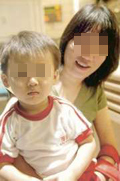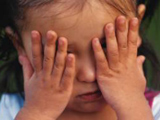| |
Citigroup Success Fund sponsors
3rd Project Teen Action 2006
With sponsorship from Citigroup
Success Fund, HKFYG’s Youth Support Scheme organized
the project with the Hong Kong Police Station
at Castle Peak for the third
time. Police volunteers were recruited to train 18 teenagers
aged
13-16 who have been cautioned
by the police. They are taking part in a programme of
physical exercise and adventure-based activities which
began in November 2006 and will end in February 2007.
We hope it will help to improve their communication skills,
physical fitness and team spirit.
|
SWD supports anti-drug
project for 69 teenagers and parents
The Social Welfare
Department’s District Support Scheme for Children and
Youth Development is working on this project with the HKFYG Sai Kung and
Wong Tai Sin Outreaching Social Work Teams and the HK
Lutheran Social Service Evergreen Lutheran Centre, Psychotropic
Substance Abuse Counselling Centre for Youth. From November
2006 till February 2007 a series of activities including
parent-child workshops, picnics, a day visit to Hong
Kong Disneyland and therapeutic counselling groups are
taking place with 69 confirmed or potential teenage drug
abusers plus parents from a total of 73 families. The
project sends the anti-drug abuse message to teenagers
and helps them to live more healthily. Supportive parents
are also closely involved. |
Pak Fah Yeow for home alone
elderly
Sponsored by Hoe
Hin Pak Fah Yeow Manufactory Ltd, the Federation’s u21 youthnet
is making arrangements for Federation youth volunteers
to take gifts and warm festive greetings to elderly people
living alone in Hung Hom. With English Street,
Hong Kong Economic Times and MSN
HK as media partners, about 20
youth volunteers will spend time visiting the elderly
on 11 February before the Lunar New Year.
Dear readers, you too can
help us give presents to elderly people in need. Please
go to u21 youthnet: u21.hk for more information. |
Michelle Kwan addresses youth:
thanks to U.S. Consulate General
The Dragon Foundation
would like to thank the U.S. Consulate General for
the arrangements made with champion figure skater and
American Public Diplomacy Envoy Michelle Kwan, to speak
to 280 nominated young people. On 23 January at the
Wang Gungwu Theatre, HKU, she shared her experience
of growing up as a Chinese American and spoke of her
views on contrasting cultures and traditions. As a
gesture of goodwill, Ms Kwan brought Disneyland-sponsored
Winnie the Pooh fluffy dolls for distribution to the
audience.
|
HSBC donates tangrams to young
people
The Federation has received
2,660 sets of the seven-piece geometrical tangram puzzle
from HSBC. We will distribute the games to children
and young people from disadvantaged families.
|
| Publications
|
Federation
Youth Volunteer Network (YVN)
teaching kits
|

Sponsored
by the Quality Education Fund, the Federation invited
43 primary and secondary schools to join the voluntary
service learning programme, <義工精神 立根校園> 服務學習計劃
from 2004-2006. Youth workers operated within the schools,
encouraging and training students, teachers and parents
in volunteer community service. The 2-year project
also involved planning volunteer activities and grooming
teachers
as volunteer project leaders. These newly published
teaching kits summarize experience gained implementing
the programme.
tel
YVN at 2169 0032 for more details. |
|
| |
|
| |
| |
|
Child
neglect: abuse with serious consequences |
 |
When lonely schoolchildren call the Federation’s
counselling hotline* we listen very carefully. * 48,360
cases were handled last year and over 9,000 were from
6-14 year-olds. Disturbingly, between 2004 and 2006,
137 of the children said they were on their own. Many
call because they want someone to talk to but often that
means parents are not looking after them as well as they
might.
A recent case of neglect highlighted the problem. A
young mother was charged with cruelty for leaving her
two toddlers without food or warm clothing, locked up
in the house alone overnight while she went out. It was
not an isolated incident and the Social Welfare Department
is considering taking the children into custody. |
Immature parents need education
as much as their children need protection. Babysitters,
child-care centres and
emergency foster homes can help but all are ineffective
if parents lack awareness of the risks, especially of
leaving children alone. Reminding them of their responsibilities
is part of our job. We try to act before there is a cry
for help.
Contact Family Life Education, tel 2557 1308
for more information on the parenting skills education
we give as an HKFYG core service. The HKFYG Ching Lok
nursery/kindergartens offer occasional, fee-paying
child-care services. Fee waivers are available for
low-income families. |
|
| Feature
Story |
| Educate parents and
prevent child neglect
According to North American sources the most
common form of child maltreatment is neglect and 63%
of all substantiated cases of child abuse* involve maltreated
children. These figures are not mirrored in Hong Kong (see
Facts and Figures) but the similar pattern of incidence,
with parents as the most common perpetrators, means that
effective preventive parent education and guidance
is essential.
|
Wing, a Federation social
worker with experience at both kindergarten and primary
levels, talked about her work with a difficult family where
the parents were separated, the mother was mentally ill
and yet father, mother and 3 boys shared the home:
|
‘I realised that 6 year-old Andy had a problem when
I saw how dirty he was. Then I noticed he was wearing a
thin summer uniform in winter and his teacher told me his
results were poor. I asked him what was wrong. He said
his one meal a day was his school lunch. That’s when I
decided to take action.’
|
 |
‘We contacted the parents. They weren’t
communicating with each other and it was obvious that they
couldn’t look after the boy, youngest of three. The mother
was clinically depressed and the father was out all day
looking for a job.
‘We suggested foster care and although the father agreed
the mother protested. She thought we just wanted to split
up the family. It was a sensitive situation for a while and
took a lot of visits and patient explanations before she
understood it was the best thing.’ |
Eventually both parents agreed and Andy has been in
a foster home for three years. The outcome of child neglect
cases is not always as clear-cut as this, as Fanny, social
worker at HKFYG’s primary school outlined:
‘Jimmy was always arriving late for school so I asked
him why. “My mum gets up late,” he said, “she’s on the
computer all the time and nobody wakes us up for breakfast
and then there’s nobody to take me to school. Can you come
and get me?” |
 |
‘Jimmy’s father wasn’t there when I went
to their home and the mother, in her 20s, clearly had no
idea of giving her two children a good upbringing. It was
established as a case of child neglect but there has been
no conclusion yet.’
|
Federation school social workers and Youthline counsellors
on the hotline collect information and assess the seriousness
of the situation before passing information on to the authorities
and agencies concerned.
|
We asked Teresa, a social worker with Youthline,
HKFYG’s counselling hotline, whether she thought that the
increase in reported cases of child abuse and neglect was
due to increased awareness or increased levels of abuse:
|
| ‘To a certain extent, community education programmes organized
in recent years by government and NGOs raise awareness and
have encouraged the reporting of cases. However, the common
patterns of child neglect and psychological abuse may not
be so well known and are more difficult to identify than
physical abuse.’ |
| According to statistics from both the Social
Welfare Department* and cases handled by Against Child Abuse,
there is a rising trend in cases of neglect and the majority
of child abusers are parents. |
| The Federation will continue its work in this
field, gaining as much ground as possible in the effort to
protect vulnerable youth. |
| Facts & Figures |
Signs of neglect
Hong Kong’s child neglect statistics for 2006
put cases at about 11% of all substantiated child abuse cases.
If this is an accurate reflection of the situation it is
very different from overseas. In the US, for example, neglect
is the most common form of child maltreatment with 60% of
all child abuse victims falling into this category.*
|
|
 |
Neglect is classified
as physical, educational, emotional or medical, with physical
neglect being the most prevalent. It usually involves the
parent or caregiver providing inadequate food, shelter or
clothing. Physical injury may not be visible in a neglected
child but if he or she is often absent from school, always
dirty, badly dressed and hungry, these are sure signs of
neglect at home.
Malnutrition, serious illness and injury due to lack of
supervision are some of the physical effects of neglect.
Its immediate emotional effects are isolation, fear and inability
to trust. These in turn often lead to low self-esteeem and
adolescent behavioural problems. A history of neglect will
increase the likelihood of juvenile arrest by 59%.**
In one long term study,*** almost 80% of those abused in
childhood were diagnosed with at least one psychiatric disorder
by the age of 21. Over 30% of all child maltreatment fatalities
are caused by neglect and over 80% of all maltreatment-related
fatalities are in the 0-6 year-old age bracket. Most such
deaths are the result of neglect by one or both parents.
It is no coincidence that child abuse cases in Hong Kong
cluster in areas with a high proportion of low income families
such as Tuen Mun (12%) and Yuen Long (15%). The same pattern
is seen overseas where research**** has shown that children
living at or below the poverty line are 40 times more likely
to be maltreated than those of families with median or above
incomes.
Lower income parents cannot afford fees at nurseries or
child care centres and may not know they can apply for a
fee waiver. However, healthy physical and psychological development
depends on numerous factors, not just income. The phenomenon
of double income families in Hong Kong means that middle-class
parents may also spend little time personally looking after
their children, relying on a domestic helper as a stand-in.
Statistics compiled by the Social Welfare Department and
based on cases covered by the Child Protection Registry show
that in over 30% of 2006 cases the abuser is one or both
parents. This is borne out by evidence from Against Child
Abuse, the specialist local charity.
|
| New
readers: please send your contact details |
|
|
|

